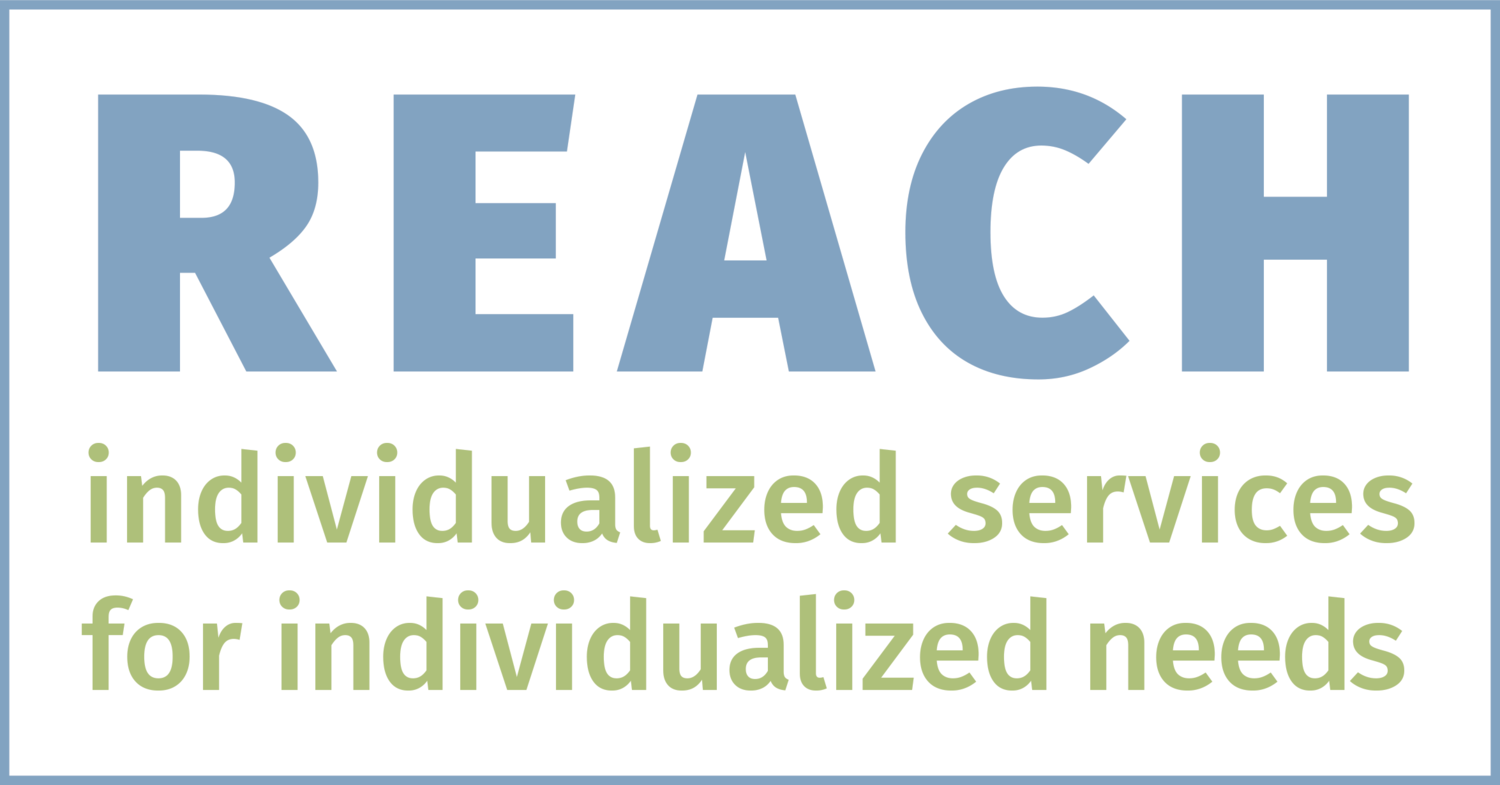
Join Our Newsletter
December 2021 Newsletter
Finding the Best School Option for Your Child
Recently, we’ve heard from several REACH Learning families who are considering moving their child to a different school and want to know how they can find the best fit for their child and what they need to do to apply.
Now happens to be a key time to address these questions as the application process for many private and charter schools opens in November and closes in February. Public schools also have a school choice option, which opens in January and continues thru late spring.
We suggest parents start by making a list of their child’s key interests. In addition to core subjects they favor, include things like building, drawing, robotics, music, and outdoor exploration. Next, think about the type of environment in which your child does best. Do they prefer small or large groups? Do they learn better by doing or by reading or listening? What factors make them feel secure and what things overwhelm them?
Once you’ve developed a list of needs and wants for your child, it’s time to create a list of schools that align with some of your child’s interests and passions and that seem to have an environment in which they can thrive. This phase of your research can often be done online by visiting various school websites and researching their programs and teaching philosophy. Keep in mind that you may not find a school that checks all the boxes in your initial research phase. That’s okay as your goal is to create a shortlist of schools that you want to learn more about.
After you have a grid that matches the needs of your child to a list of schools, it’s time to start the next phase of the exploration process. To learn more about the types of questions you should ask and tips for school visits, check out our blog post that outlines the different types of school options, key things to check out during school visits, items that may need to be completed as part of the application process and practical considerations to weigh when making a final selection.👏👏
Learning Opportunities Outside the Classroom
Winter break is upon us! While the kids (and teachers) may be jumping for joy, a lot of parents are concerned about learning loss. Instead of running out to purchase workbooks, we encourage parents to incorporate learning into fun everyday life activities. Here are some suggestions to help you keep your student’s mind active over winter break. Bonus: you won’t have to resort to bribery to get an assignment completed!
Math activities
Grocery store addition: Take your little ones to the store with you and engage them in the shopping process. Ask them to pick out 5 apples or 2 peppers and then quiz them about the number of produce items in the cart. Older kids can practice fractions and decimals by totaling the amount of deli and bulk meat you purchase.
Weekly budget: Determine your family’s entertainment budget for the week and task your child with determining what activities you can do within that budget – and providing a balance after you complete each activity.
Game score keeper: Ask your child to be the scorekeeper when your family plays board games. They can practice addition and subtraction skills to help determine who wins.
Reading and writing activities
Recipe reader: Ask your child to assist you in meal preparation by reading each step in a recipe. For older kids, you can combine math and reading by having them measure ingredients and/or make a meal based on a recipe.
Holiday cards: Enhance the joy of receiving holiday cards by having your child read each card out loud.
Thank you and gratitude cards: A thank you card is much more meaningful when it is written by the gift recipient. Have your child write thank you cards for all the holiday gifts they receive. Keep the gratitude and penmanship flowing by having them write random notes to thank those that bring joy to their lives.
Family games
Game night is a fun way to practice reading, writing and math skills – and the kids will have won’t even realize they’re learning! Here’s a few of our favorites:
Mancala – counting, problem-solving/strategy
Battleship – problem-solving/strategy, graphing/coordinates
Quixx – strategy, addition
Yahtzee – counting, strategy, probability, matching
Mathable – addition, subtraction, multiplication, division
Boggle – spelling, reading, creating words (helping each other is okay in our book!)
Blokus – problem solving/strategy, geometry, spatial reasoning
Rummikub – strategy, problem-solving
Scrabble Junior– spelling, reading
Mad Libs – vocabulary, reading
Road trip fun
Audible books: If you’re about to pack the whole family in the car, audible books or podcasts are a great way to while away the time. They help engage the imagination and improve listening skills. Bonus: kids will get so engaged, you won’t have to listen to the familiar whine, “Are we there yet?” Check out this list of audiobooks from Everyday Reading or explore a new podcast from Kids Are a Trip. There are so many options that you’re sure to find one the whole family will enjoy!
License plate game: Even on short trips across town, it’s easy to spot license plates from many different states. As you play the game, have your child keep score and determine who has the best spotting abilities.
I Spy: Before you leave for a trip, print out sheets of things you might see along the way. Have your child read the list and, as they spy each item, write down where they saw it.
If you have fun ways that you incorporate learning into everyday activities, please email them to info@reachlearningservices.com.
Happy holidays from the REACH Learning team!
Please note that we will be closed from December 20th thru January 2nd to enjoy time with our families. We look forward to continuing our work with all of you in the new year.
Maximizing the Joy of the Season with a Neurodiverse Child
Flip the calendar to any day between mid-November and early January and you can take your pick of holiday activities. There are plays and choir performances, light displays and parades, baking parties and meals with family and friends. And that’s not including gift shopping, wrapping, cards and decorating! But just because you have the opportunity to participate in all these seemingly fun activities, doesn’t mean you have to. In fact, the key to a joyous holiday – particularly for families with a neurodiverse child – may be that less is more. The lights, sounds, sweets and group gatherings that may sound so enjoyable can actually be overwhelming to those with a neurodiversity. Here’s a few tips to help maximize joy – and minimize meltdowns – this holiday season.
Involve the family in planning: Sit down as a family and discuss which activities are most important to each person.
Develop a schedule: Write down what activities you plan to attend and be sure not to schedule activities back-to-back. Also, be sure to include “chill” days to allow your child to relax without any expectations.
Outline expectations: Let your child know in advance if they need to dress up for an event, talk to members of the extended family or participate in an activity. Be sure to listen to their concerns and also to let them know what you expect from them.
Minimize sensory overload: If lights, sounds, new tastes or large groups tend to overwhelm your child, try to avoid activities that include these. For those activities that your child must attend, scout the space when you arrive and find a quiet spot where your child can take a break if they become overwhelmed.
Maintain routines: As much as possible, stick to routines that include set times to get up and go to bed, eat meals, wash up, complete chores and enjoy downtime. This will help maintain your child’s physical and emotional balance.
Learn to say no: Many parents feel pressured to accept invitations or to stay at a function until it’s over. Remember that you know your child best and dragging them to a place that’s uncomfortable or staying late despite warning signs of an impending meltdown isn’t in anyone’s best interest. Don’t hesitate to convey your regrets and be comfortable knowing that your decision is the best for everyone involved.
Take care of yourself: Most parents try to take on too much during the holidays and end up feeling exhausted and stressed. Your child will appreciate quality time with you much more than a new toy or home baked treat. And, you’ll enjoy the spirit of the holidays much more if you’re rested and replenished!
Let’s Get Social!
Connect with REACH Learning on Facebook and Instagram – both handles are @REACHLearningServices. Our social media sites include tips, inspiration, and links to great articles and resources. Be sure to like and follow us and invite your friends and family to do the same!
Additional Resources
Learn more about ADHD.
ADHD (Attention Deficit Hyperactivity Disorder) is a condition that causes differences in the brain making focus difficult, hyperactivity, and impulsivity.
Learn more information about ADHD from Chadd.org.
Learn more about Dyslexia.
Dyslexia is a learning difference when someone has trouble reading and with reading comprehension, spelling, and writing.
Learn more information about Dyslexia from Dyslexiaida.org.





